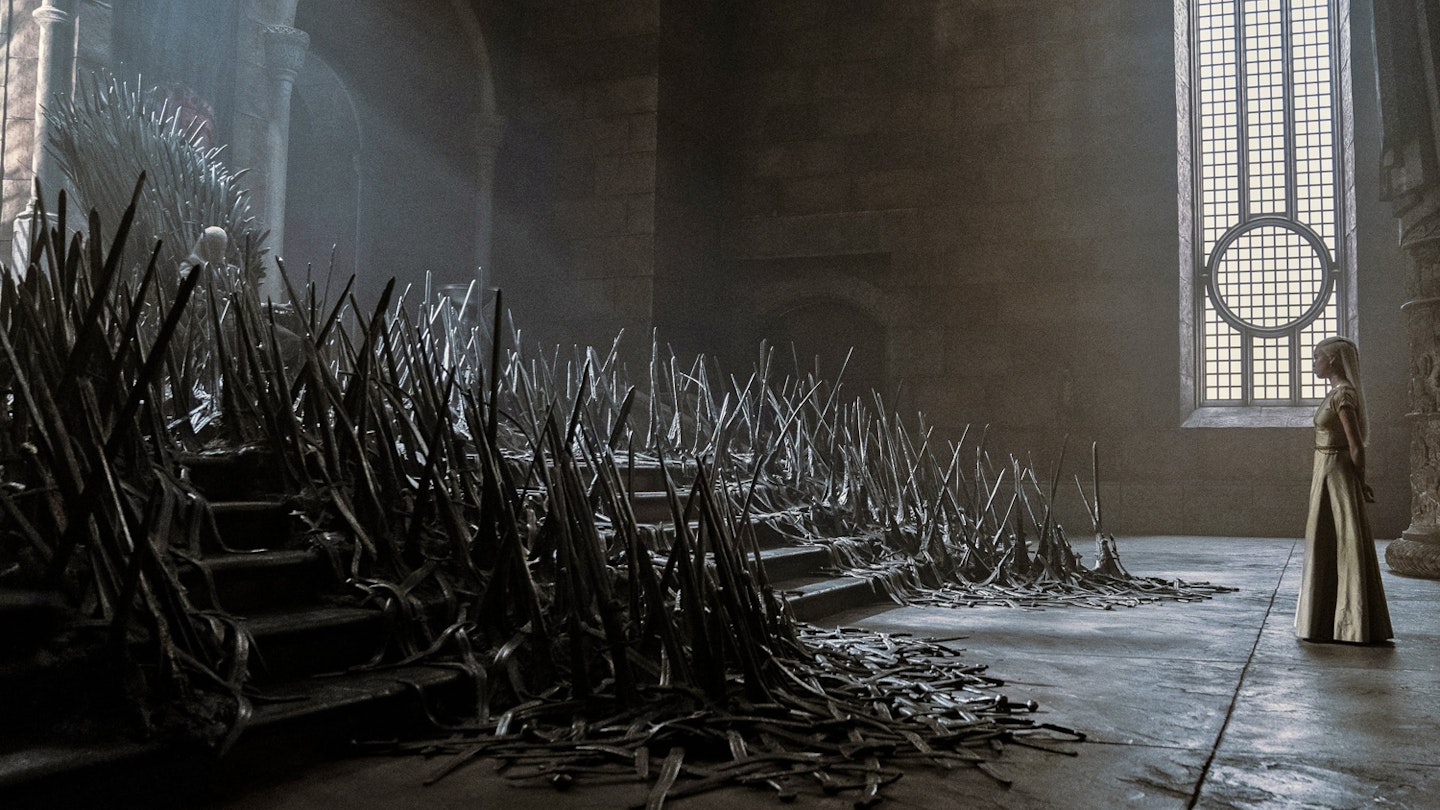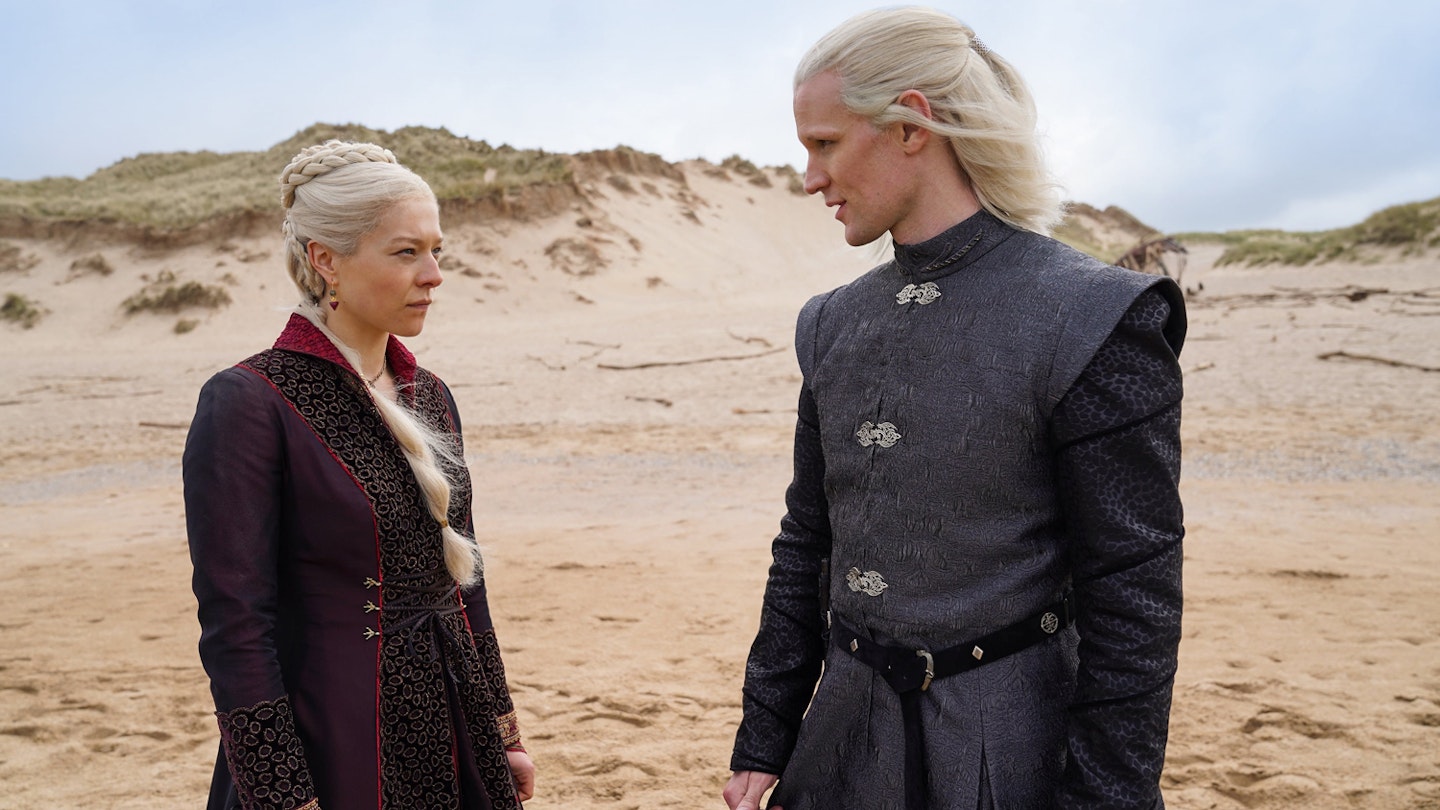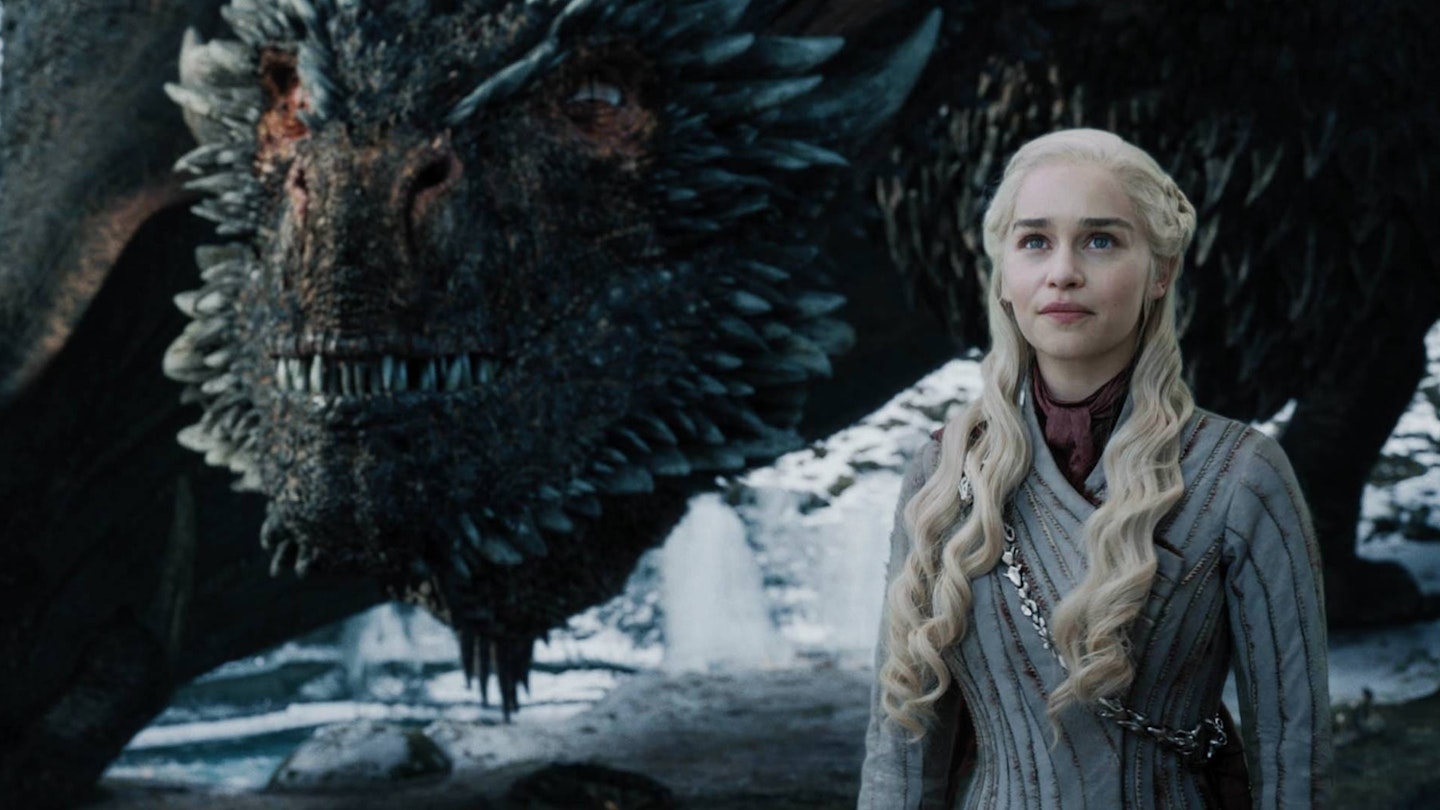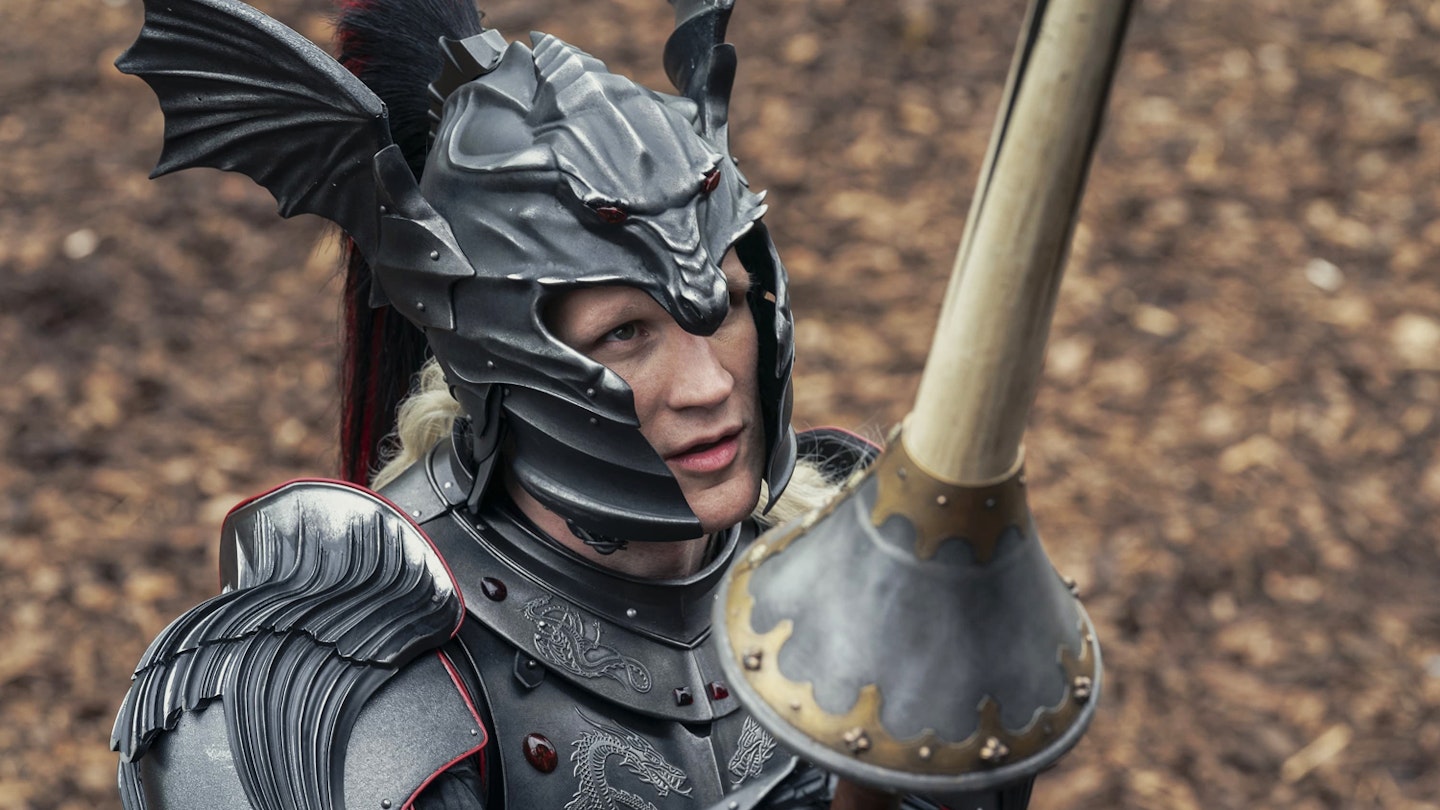It’s obvious whenever you post anything about Game Of Thrones online: people are still really mad about that ending. For years, HBO’s epic fantasy series was the most acclaimed show on TV – a genre game-changer with bold character arcs, shocking violence, intricate plotting, and a growing blockbuster sensibility as it delivered greater numbers of dragons and zombies and trolls (oh my!) in its latter years. But somewhere along the way (notably, around the time showrunners David Benioff and DB Weiss got to the end of George RR Martin’s source material and had to find their own path), consensus around the show began to shift. Come the truncated eighth and final season, some of the things the show had long been known for – careful plotting, rich dialogue, considered characterisation – felt long gone.
House Of The Dragon has a lot to live up, then. On the one hand, it’s following a surprise smash series that changed the fantasy genre forever, kicked off a new wave of mega-budget TV, and delivered some of the most jaw-dropping twists and turns to hit the cultural consciousness in decades. On the other, it arrives only a few years after the final season of Thrones, well, pissed a lot of people off. Ironically, viewers who disliked the last run of episodes have gone a little Daenerys-in-Westeros about the whole thing, their opinion on the entire show turning full scorched-earth after the conclusion failed to live up to their expectations. House Of The Dragon has two unenviable tasks to tackle: can it stand on its own feet and prove a worthy follow-up to its parent show? And ultimately, could it turn the temperature around and remind people why they loved Thrones so much in the first place?

There are strong early signs. For one, George RR Martin is heavily involved here – and his influence on the greatest seasons of Game Of Thrones was notable. Not only did the first half of that show hew pretty closely to Martin’s source material (before the books became too unwieldly to directly adapt for the screen) but he also wrote episodes himself across the first four seasons, a significant cog in the machine. From Season 5 onward, Martin was no longer writing episodes – and that season, notably, was when the roadmap began to peter out, and the quality of the dialogue and storytelling began to waver. For House Of The Dragon, he’s back in a big way. The series is based directly on Martin’s dense Targaryen history tome Fire & Blood, and it’s the spin-off show he saw the most potential in when various avenues were mooted. If it’s currently unclear whether Martin directly wrote on the series, he is one of its three showrunners (alongside Ryan Condal and Miguel Sapochnik). Obviously, nobody know this world quite like him.
While not quite up to the standard of its stellar early run, was the ending of Game Of Thrones really that bad?
And you can see why Martin would have such faith in the idea of bringing the Targaryen civil war to the screen. The trickiest line for House Of The Dragon to walk will be, how can it do Game Of Thrones again without simply doing Game Of Thrones again – and this show has the potential to succeed in that aim. While it takes us back to Westeros, the 200 year time-gap (Dragon is set two centuries before Thrones) means plenty is different in the kingdom – not least, the Targaryens are in power (Daenerys was basically the only one left in Thrones), and there are dragons flying around everywhere. With the Targaryens’ tangled history (Incest! Betrayal! Marriages, births and deaths galore!) there’s plenty of scope to deliver on the rise-and-fall story arcs that made Thrones so thrilling. And with a greater number of winged beasts, the face-melting pyrotechnics that delivered thunderously apocalyptic setpieces in the latter years of Thrones (a highlight even in the final season) can return too.

For all the potential, though, there’s a bigger question rumbling outside the show itself: are audiences ready for more Westeros yet? To what extent did Game Of Thrones’ goodwill burn up along with the charred remnants of King’s Landing? Plenty of viewers remain at best apathetic and at worst furious by where Thrones eventually landed. Will they even be tempted to go back? Much has changed even in the last few years. Now, House Of The Dragon enters into a far more crowded big-budget televisual market – one that its parent show helped create. Once the only place for a big-story-small-screen fix, Thrones’ successor now faces stiff competition from Amazon’s The Lord Of The Rings: The Rings Of Power, new Disney+ Star Wars series Andor, and Netflix’s The Sandman. Among those shows, House Of The Dragon is set to be gnarliest when it comes to OTT violence, gore and physical and emotional brutality. While a key part of Thrones’ initial appeal, is there an appetite for something quite so provocative after two years of real-world misery? Temperature has changed, too, around depictions of sexual violence (a conversation that was similarly evolving during Thrones’ initial run), which will inevitably come into play here too.

But if House Of The Dragon can capture the public imagination to even a fraction of the degree of Game Of Thrones, perhaps it’ll prove that there wasn’t much to redeem in the first place. While not quite up to the standard of its stellar early run (reminder: some of the very best TV ever made), was the ending really that bad? The final destination for many of Thrones’ characters didn’t feel too out of step with their trajectories across the show, and if it felt rather rushed (a ten-episode season really would have helped), it was undeniably spectacular – delivering a double-whammy of showdowns with brave knights, dragonfire, zombie armies, and character moments big and small. Whether or not it ended in the way you wanted it to, does that mean it was a bad ending? And was the ending really the most important thing, given how outstanding much of the path there was? As with Lost, the obsession with the final season has come at the expense of enjoying, well, everything else.
Undeniably though, the beginning and the middle of Game Of Thrones was revolutionary, break-the-wheel television. Fingers crossed, House Of The Dragon can give us that once more – and maybe even land it with a banger ending too. Start praying to the gods of Old Valyria.
